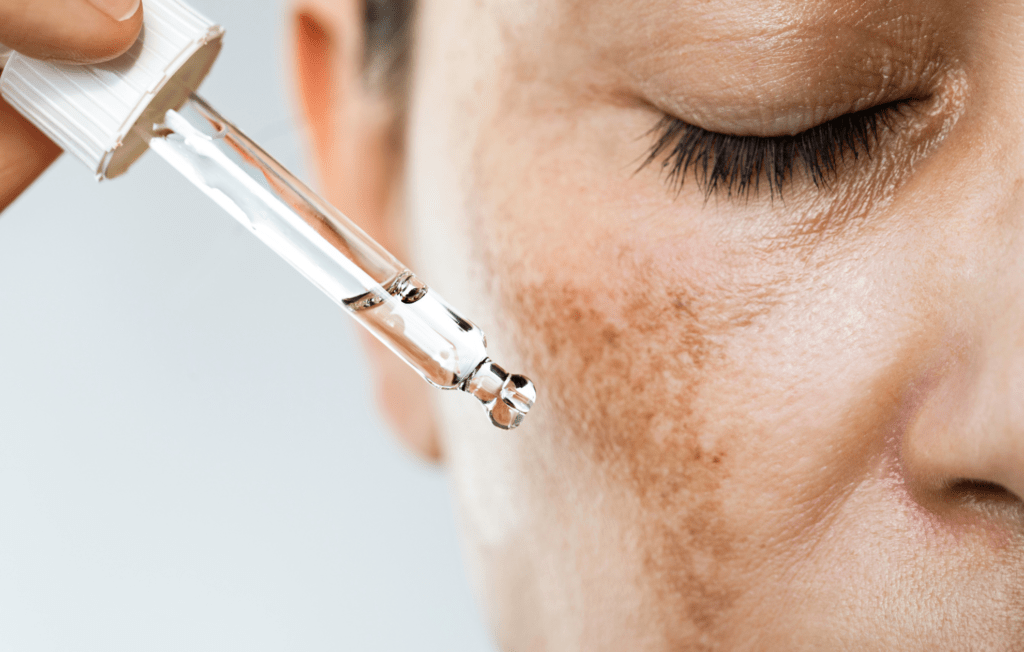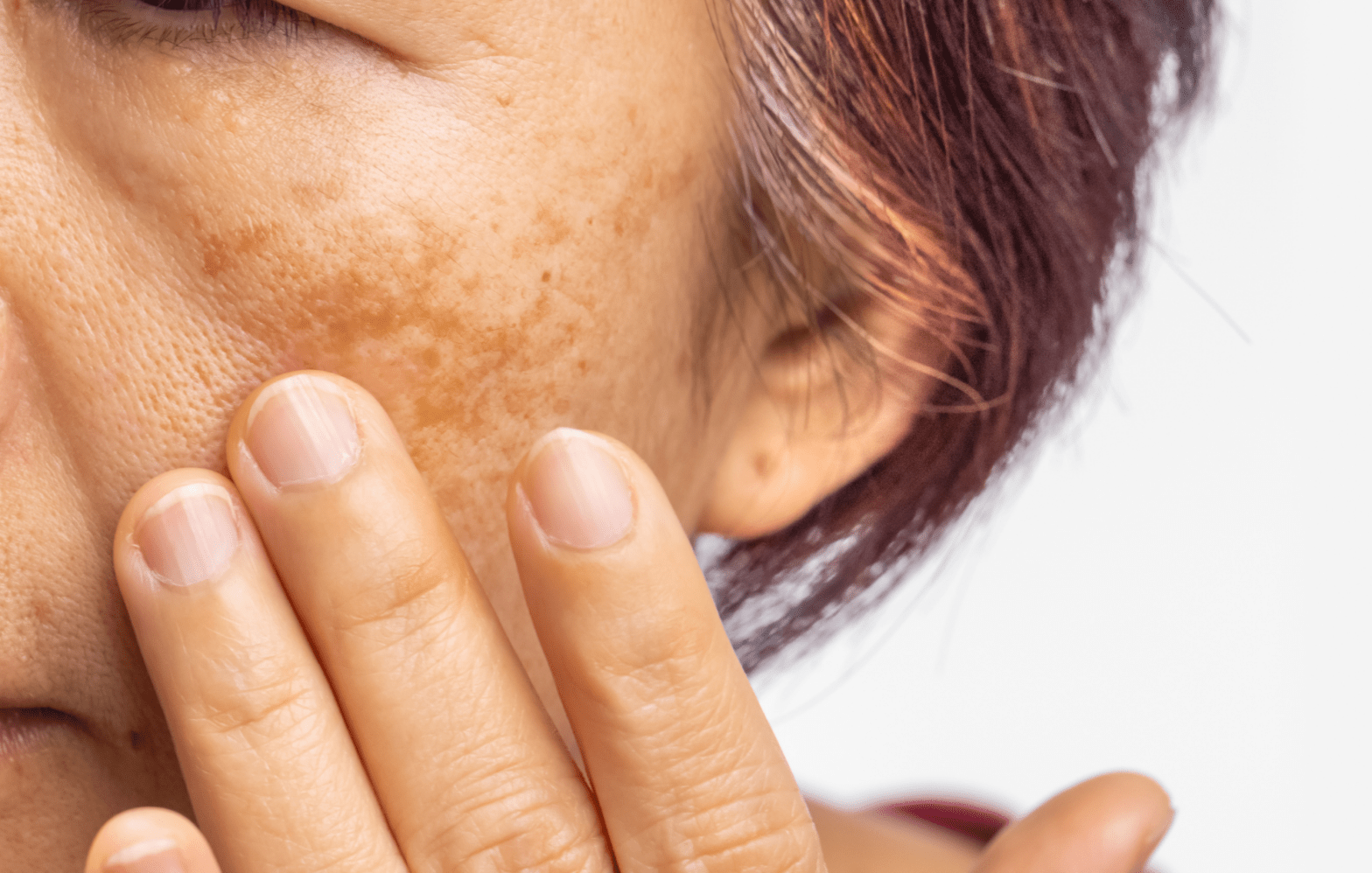What is Melasma?
Melasma is a common skin condition that causes brown or gray-brown patches, typically on the face. It usually appears on areas of the skin that are exposed to the sun, such as the cheeks, forehead, bridge of the nose and above the upper lip.
Melasma occurs when melanocytes (cells that produce pigment) in the skin overproduce melanin due to various factors, including sun exposure, hormonal changes (such as pregnancy or birth control pills), and genetics.
It is more common in women than in men, typically between the ages of 20 and 40 years. It is also more common in individuals with medium to dark skin tones and those who tan easily.
Melasma can be separated into epidermal, dermal and mixed types, depending on the level of increased melanin in the skin. This can be determined by your dermatologist after they have a closer look at your skin.

Treatment Options
In some individuals, melasma may go away on its own, however it can also last for years. Dermatologists have recommended treating melasma sooner rather than later as it can be difficult to see visible results if you’ve had it for many years.
At Mckenzies Compounding we make topical creams at varying strengths and with different active ingredients that are tailored to your needs. The different active ingredients that we use work by inhibiting melanin production and preventing formation of new patches. Our compounded products can be effective in lightening dark patches, improving overall skin tone and reducing the appearance of melasma.
As mentioned earlier, sun exposure can cause the skin to make more pigment, which can darken exisitng melasma or cause new patches to form. It is important that you minimize sun exposure by wearing a wide-brimmed hat, seeking shade and applying a broad-spectrum sunscreen throughout the day.

Conclusion
While melasma can be challenging to manage, understanding its triggers and treatment options empowers individuals to effectively address pigmentation concerns. Consult a dermatologist for personalized guidance on managing melasma and achieving clearer, healthier skin and feel free to talk to our compounding pharmacists about available products at Mckenzies Compounding.
https://www.ncbi.nlm.nih.gov/pmc/articles/PMC2807702/

